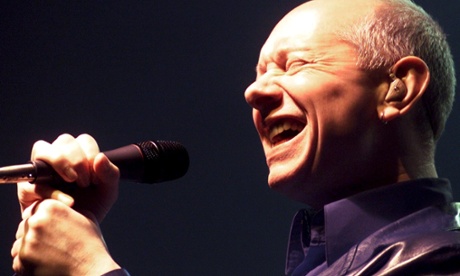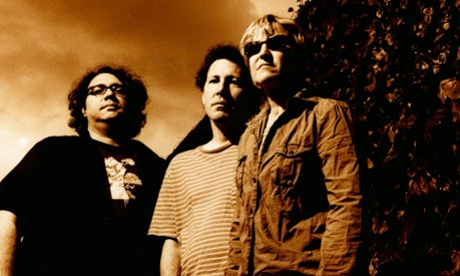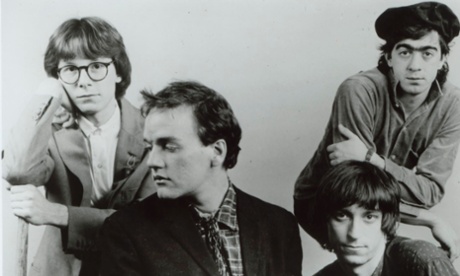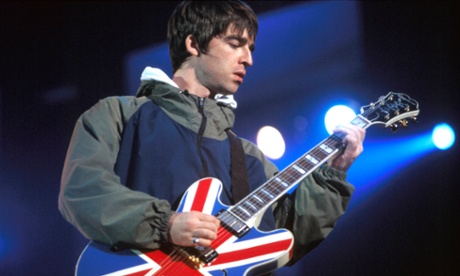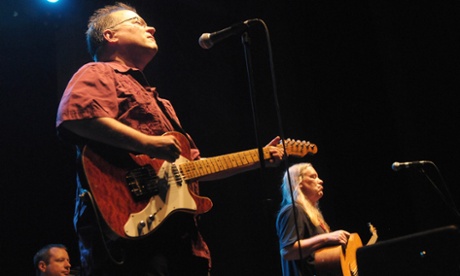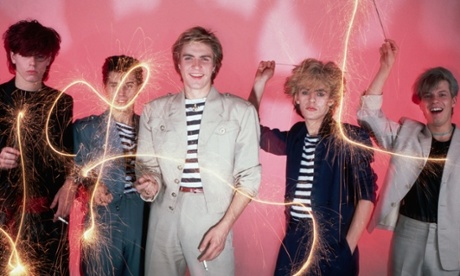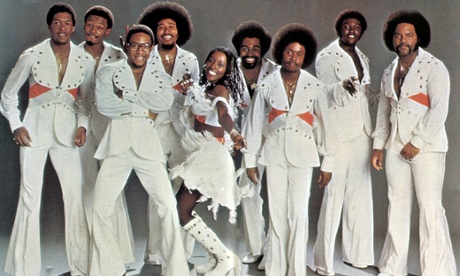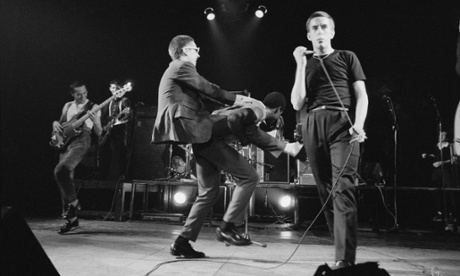Two years ago I took my then 10-year-old son to a Joe Jackson concert at London’s Cadogan Hall. It was my 10th time seeing him live; my son’s first. He was the same age I was when I first started exploring music and I wanted to share with him my passion for Joe’s. It was my favourite person and my favourite musician in the same room, and while my son enjoyed the concert, I sensed it wasn’t really up his street. I had to accept the music that would change my son’s life might be different from mine.
In 1980, as a 12-year-old growing up in Toronto, I had embraced the era’s popular music, bands that today are mocked relentlessly: Journey, Styx, Foreigner. These were the chart-topping, arena-filling bands with musical libraries of equal parts loud guitars, crunchy piano ballads and catchy three-and-a-half minute melodies. And man, could those guys sing.
By the time I was a teenage wannabe rock star, I’d already started playing in clubs with a variety of bands in the Toronto scene. I thought I knew what music was and what it meant to me. The music I listened to shaped me as a singer. But then I heard Joe Jackson’s Body and Soul album and it upended my entire musical lexicon.
I’d spent the summer I turned 16 working as a camp counsellor in a beautiful setting by a lake in northern Ontario. One guy I was sharing quarters with was in charge of waking us up every morning and within seconds of his alarm clock sounding off, he’d reach over and press play on his cassette player to start up on Joe Jackson’s seventh studio album. As the summer wore on, I found myself getting more and more drawn to his songs. The melodies were Beatles-esque, the lyrics clever but not pretentious and the arrangements more sophisticated than anything I’d paid attention to before. Every song had been inspired by a different genre, yet the entire album coalesced due to its unique use of horns and Joe’s distinctively unpolished singing voice full of blithe assertiveness.
The album had been released in March of that year and had one fairly big radio hit with You Can’t Get What You Want (Till You Know What You Want), which went deep into the top 20 on the US and Canadian charts. No small feat as this was a year in which Michael Jackson (no relation), Madonna, Duran Duran, Prince, Lionel Ritchie and Bruce Springsteen smothered the music scene. I recognised his name from his earlier hits – Steppin’ Out, Breaking Us in Two, Is She Really Going Out With Him?, Fools in Love – but initially his song was just another radio offering. At that time, the songs that came over the radio, from Wham! to Earth, Wind and Fire to Van Halen, sounded generically commercial because they’d all emanated from the same box; sometimes even the same station.
Body and Soul opens with the drum- and horn-heavy The Verdict, inspired by the Paul Newman film of the same name. In it, Joe equates the loneliness and stage fright of performing with that of a frontline solicitor representing a witness in a high-profile legal case. Next is Cha Cha Loco, a Latin-flavoured homage to the joys of dancing, followed by the tinkling piano-based song of love put on hold, Not Here, Not Now. The radio hit You Can’t Get What You Want, with an intoxicating, jazz-inspired guitar solo from Vinnie Zumo, leads into Go For It, a quick march through the merits of thinking positive, horns blaring like the studio was on fire. The lyrics reference Ray Charles and Babe Ruth, who’d beaten the odds despite having to overcome certain obstacles.
Side two, as it was delivered before CDs and MP3s, opens with Loisaida, a lilting instrumental piece featuring a trumpet melody that I always wished would go on forever. Happy Ending is a catchy pop duet, a boy-meets-girl romp through a date movie that even places the song in history: “It’s not so easy/ It’s ’84 now”. The penultimate song, Be My Number Two, is one of Joe’s most confessional songs of that era relying almost exclusively on his piano as accompaniment. Finally, Heart of Ice ends the album with nearly seven minutes of slowly building musical tension – easily the most jazz-influenced track – before a brief lyrical disclaimer that the singer may be trying to shed himself of his cold-hearted posturing that typified his earlier songs. The song and the album end on a high note, accentuated by a thrilling one-bar fanfare from the omnipresent horns.
This album not only changed the way I appreciated popular music, typified until then by my allegiance to straightforward arena rock, it changed the way I listened to all music. Besides being attracted to melodies, I now heard arrangements, instrumentation, musical styles and lyrics. I homed in on the craft of songwriting. I discovered the fine line between genres that early-80s musicians such as Joe, Sting and Paul Simon were eager to cross. Most importantly, I paid close attention to how the music made me feel. To this day, with every listen I gather new things from the songs.
Even the album cover, which I pored over after I bought my own copy, was different. It was styled to look like a vintage jazz album, with Joe posing with a saxophone and a cigarette. I later learned that he had unapologetically mimicked the cover of saxophonist Sonny Rollins’ 1957 release, Volume 2. On the back, a music writer had written something on each song and how it was recorded, just like the Blue Note records of the 50s and 60s. The whole package inside and out fed me into a joyous learning curve.
Soon after succumbing to Body and Soul’s heady mix, I quickly welcomed Joe’s back catalogue into my life, including his early “angry young man” albums (Joe claims he was never angry) and his tribute to the swing era, Jumpin’ Jive. They all had his distinctive fingerprints on them. I bought all his soundtrack recordings. I found a Thelonious Monk tribute album with a contribution by Joe that also featured Dr John, Bobby McFerrin, NRBQ, Gil Evans and Todd Rundgren, with whom many years later Joe toured. From there I fell into jazz fusion, prog rock and some electronic music. It didn’t matter what label anyone wanted to pin on a certain artist, all that mattered was the effect the music had on me. Like Joe has often said in quoting Duke Ellington: “There are only two kinds of music: good and bad.”
In 1999, Joe’s book A Cure for Gravity came out and during his book tour I went to see him in Ann Arbor, Michigan, near where I was living at the time. I couldn’t wait to have him sign my copy so that I could tell him how much his music had changed me, how I could trace the family tree of my music appreciation to that first moment when I understood what Body and Soul had done to me. But as I approached him at his signing table, I took a deep breath and then just said: “Hi!” He returned the salutation, signed my book and handed it back to me. That was the extent of our communication. At the last minute I decided, perhaps subconsciously, that if I revealed my truth to him, the moment might somehow be ruined by sycophancy. Instead, I kept my joy to myself.
My so-called music career soon faded but my calling as a music listener didn’t wane, and Joe’s music continues to take centre stage. I’ve spent more time with his songs than any other artist’s, with the possible exception of the Beatles. For me he has always struck a gentle balance between good songwriting, performance, recording integrity and that visceral understanding I might never be able to articulate.
These days my son quietly takes his iPod on the school bus and comes home singing songs I don’t know by artists I’ve never heard of. I trust that somewhere within that maze of modern music is his own Joe. One day he’ll discover that turning point and he’ll learn, like I did, about music’s transformative properties. Still, I’m happy I had the chance to take him to that concert. I’ve done my part.
